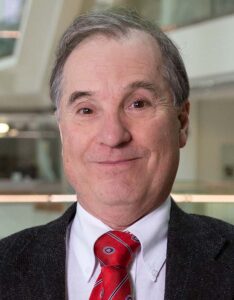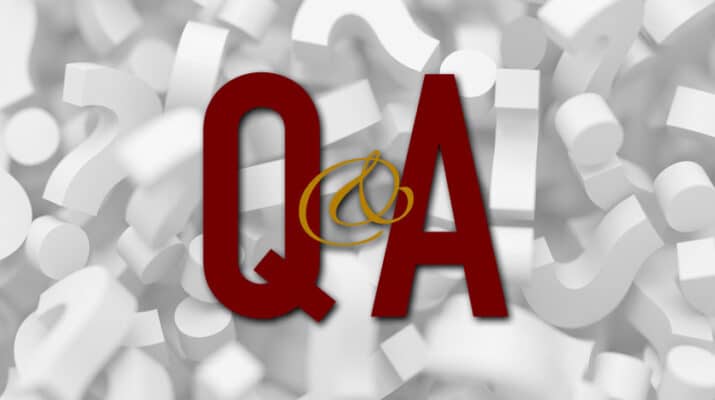Physician and Infectious diseases chief at UB: Clearing up misinformation about the pandemic
By Brenda Alesii
 A native of Boston, Massachusetts, Thomas Russo moved to Western New York in 1994. A SUNY distinguished professor, Russo, a familiar presence in local radio, TV and print media, is a go-to source for the latest analysis and updates about COVID-19.
A native of Boston, Massachusetts, Thomas Russo moved to Western New York in 1994. A SUNY distinguished professor, Russo, a familiar presence in local radio, TV and print media, is a go-to source for the latest analysis and updates about COVID-19.
It’s no wonder with credentials like Russo’s. He is a professor and chief of infectious disease in the department of medicine at the Jacobs School of Medicine & Biomedical Sciences. He treats patients at the VA Medical Center.
In Good Health talked to Russo about navigating life in a pandemic.
Q: After nearly two years of the pandemic, how do you feel about vaccines, their efficacy and the vaccination hesitancy controversy that continues to roil?
A: The vaccines, including the boosters, are a small price to pay to keep a potentially lethal and global virus at bay. I know a significant minority of people have refused the vaccine. In the short term, if they get infected and if they survive, they do have a degree of protection. But we don’t know how long that protection will last and if there will be the long-term effects from COVID. Your best strategy is to get vaccinated and boosted so that you can minimize your risk of infection.
Q: What about people who are so dug in and adamantly refuse to get vaccinated?
A: It can be described in four different buckets. In Bucket One, people are misinformed about the safety and efficacy of the vaccine. They believe things that aren’t true: the vaccine will cause infertility, that Bill Gates implanted a chip in the vaccination, it was developed too fast so it can’t be safe, etc. None is true.
Bucket Two contains young, healthy people who have an invincibility syndrome. They might be professional athletes and people who work out regularly with an “I-can-take-COVID-on” attitude. In the past, suicide, drug overdoses and trauma were the leading cause of death in people ages 24–40. Now, it is COVID. We also don’t know the long-term neurological —fatigue, brain fog, loss of taste and smell — cardiac, renal, pulmonary and other effects of COVID. It is more than a respiratory virus; all organs can be involved.
Bucket Three reflects people who have a distrust of the government. It includes a significant number who believe in a conspiracy between big pharma and the government to make money.
In Bucket Four, there are those who say, “no one is going to tell me what to do” and some feel that vaccine requirements violate their constitutional rights, which, of course, is not true. It’s a Western ego-centric argument, meaning decisions are ours to make. That’s what makes this country great, but it doesn’t work in a pandemic. If you get infected, it affects others. In Scandinavia, for example, citizens there have the least mistrust of their government. They have the best vaccination rate in the world, excellent financial resources and the scientific wherewithal to deal with the virus. Citizens here have not embraced vaccinations to the extent that Americans are on a par with countries like that. It is important to note that people who are not vaccinated and refuse to wear masks when appropriate continue to be the major drivers of this pandemic.
Q: What do you say to people who have become virtual recluses, afraid to engage in most of life’s activities because of COVID-19 fear?
A: Everyone has different levels of risk aversion. Going out may produce anxiety, but if one is optimally protected by vaccination, which includes a booster and wearing a mask in public venues when the community burden of disease is high since our vaccine are not perfect, that you can live your life in relative safety. Further, you can also get together for social gathering with others who are also vaccinated and boosted.
Q: You told me you came to WNY in 1994 and consider Buffalo home now. With your seven-day-a week schedule and all the media appearances, how do you decompress?
A: I like to have a nice quiet meal with my wife. [Russo and his wife are the parents of three adult children, a dog and two cats]. She and I like to relax and watch a couple of our favorite shows. We were scheduled to go on a Baltic cruise, but we went to Hawaii instead. I’ve got three shots in my arm. We enjoyed outdoor dining in 90-degree weather; used our masks, and felt safe.
Physician Thomas A. Russo is chief of the division of infectious diseases in the Jacobs School of Medicine and Biomedical Sciences at UB. He treats patients at the VA Medical Center.

